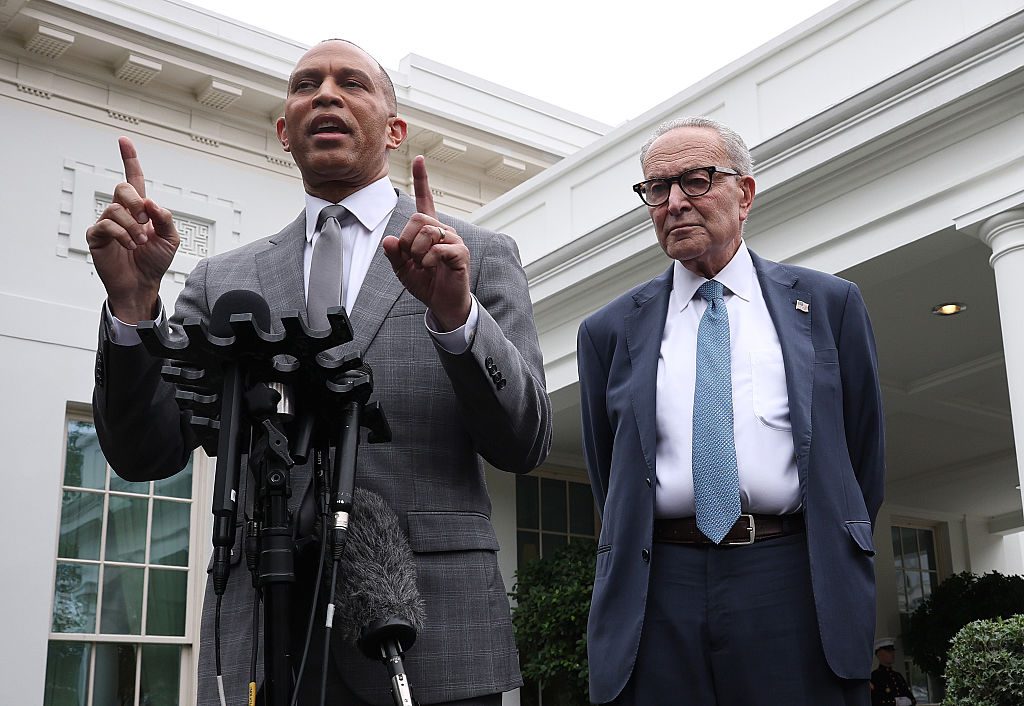The US federal government is now shut down because both parties stand to benefit from its closure, though most American voters oppose the move. This contradiction is an indictment of Washington politics, but it is a reality largely absent from the efforts of the chattering class to pin blame on one party or another.
Polling shows that a majority of Republicans, Democrats, and independents are against the shutdown. A New York Times/Siena survey of registered voters published ahead of the shutdown this week asked: “Which statement comes closer to your view, even if neither is exactly right?” It then presented respondents with a choice between “The Democrats should shut down the government if their demands are not met” and “The Democrats should not shut down the government, even if their demands are not met.” Only 27% of voters agreed that the party should shut down the government, while 65% said they shouldn’t.
What’s most telling, though, is how Democratic voters responded. Accounting for the poll’s margin of error, Democrats were nearly split, with 47% opposing the shutdown and 43% supporting it. Most independents opposed the measure, but a third supported it.
In recent years, Democrats have most often found themselves in the position of lecturing Republican rabble-rousers about the recklessness of withholding their votes and causing shutdowns. While early polling suggests most voters still blame Republicans for this particular shutdown, it’s Senate Democrats who now refuse to vote for the GOP’s funding bill. Reopening the government before the midterms will likely require at least seven Democrats to support a Republican funding bill.
The party has learned, though, that obstructionism can have its benefits. Republicans have pushed through prior shutdown periods despite negative polling and bad headlines because the party’s grassroots wanted to see action. The same cost-benefit analysis applies to the Democrats: it’s safe to irritate some voters now because nobody will remember the shutdown by the time polls open, and the party’s donors and base of frustrated grassroots activists will appreciate seeing Democrats fight. “At some point you just have to roll the dice and see if it works,” one GOP strategist told me today, reflecting on previous shutdown game plans.
Democrats are facing eerie parallels to the Tea Party movement that upended the GOP establishment and culminated in the rise of Donald Trump. Candidates are questioning the leadership and the party’s own voters are furious. A July Gallup poll found that support for the party has plunged. Around 70% of Democrats now hold an unfavourable view of their own party—a level of discontent only matched in recent history by periods in 2010, 2014, and 2016, when Republican support for the GOP hovered similarly low.
Republicans, for their part, now get to make Democrats explain why part of their proposal involves healthcare subsidies for non-citizens. This is a critical part of the party’s messaging. As the Wall Street Journal explained, “the federal government does use emergency Medicaid dollars to reimburse hospitals for some emergency treatments for unauthorized migrants”. And while Republicans lowered the federal match percentage for state hospital reimbursements in Trump’s Big Beautiful Bill, Democrats are asking to reverse this. They’re also seeking to overturn a BBB measure that barred “refugees, asylum seekers and some visa holders” from enrolling in the Affordable Care Act’s exchanges. “The more Republicans can keep the issue there, the better,” the GOP strategist explained.
What’s more, Republicans are eager to exploit the shutdown as an opportunity to make permanent cuts. As Eric Teetsel of the Center for Renewing America has said, “if there is a government shutdown due to a lapse in congressional authorization”, then the White House “must decide how to prioritize whatever federal revenues are received”. Teetsel added that “the president decides whether to pay the credit card bill or cut the cable, only the options are keeping national parks open or funding research for transgender hormone therapy in mice. The result could be the largest reduction of the administrative state in American history.” The GOP may also pursue more mass layoffs during the lapse.
Until Democrats agree to drop their non-citizen healthcare demands, Republicans have no incentive to come to the table. Democrats, on the other hand, must confront a damaged brand, frustrated base, and a desperate need to put up a fight amid Trump’s aggressive reorganisation of the federal government. There’s little incentive for compromise until their resistance boost wears off. We could be in for a long wait.











Join the discussion
Join like minded readers that support our journalism by becoming a paid subscriber
To join the discussion in the comments, become a paid subscriber.
Join like minded readers that support our journalism, read unlimited articles and enjoy other subscriber-only benefits.
Subscribe